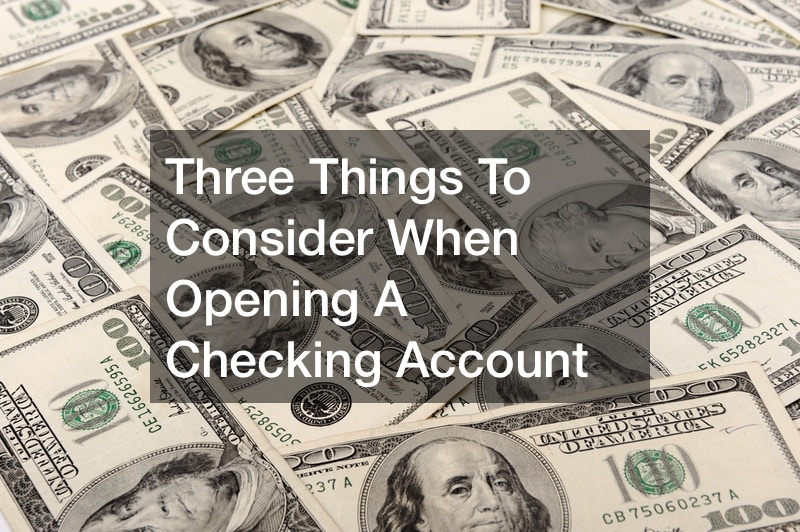Three Things To Consider When Opening A Checking Account


When comparing checking accounts, consider convenience, fees, and flexibility first. For example, a bank that limits issuing debit cards, lobby and drive-through hours, or creates hassles using mobile or online services should drop to the bottom of the list. Similarly, examine the bank’s list of fees, especially for ATM or debit card use. If you have to pay fees each time you swipe your card, or waste gasoline and time searching for in-network ATMs, that account will nickel and dime your paycheck away. Therefore, choose the bank with the fewest, lowest fees and keep those dollars in your bank checking and savings account.
Accounts opening typically requires a photo ID, proof of residence, and a minimum deposit, so bring those if you decide to do your banking in person. If not, you still have the option to open an actual bank account online, using an electronic funds transfer, or EFT, from your current bank. The bank account online application usually requests an electronic signature and may require you to provide an image file of your photo ID and proof of residence. Utility bills, voter registration cards, and mail from a state or federal government office constitute valid proofs of residence.
Whatever you do and wherever you go, you need easy access to money. Whether you’re using a credit card, debit card, sending money through an app or using cash, having fast access to money is convenient and allows you to spend your money when and where you might need to spend it.
Spending money is the easy part. Based on recent data from the Federal Reserve, 70 percent of customers have at least one credit card. That means that about 174 million Americans have at least one credit card.
But for all the spending, it’s important to make sure you have money to spend and that it’s stored in a place where you can draw from. It’s easy to spend, but it’s also important to establish checking and savings accounts in a local bank too. Community banks account for 99.5 percent of all U.S. banks. In addition, in more than 600 countries, community banks are the only physical banking locations available.
A checking account allows you to have one account or pool that you can draw from and deposit into, whether you’re putting in cash or checks. Checking accounts are insured, which means your money is protected from theft, fire and other potential hazards. A checking account also saves you from having to pay for things in cash. If you’re prone to not carrying much cash, it’s a lot easier to swipe a debit card, which draws from a checking account.
You might be asking, what do I need to do to open a checking account? It’s a fairly simple process, but you must follow each step and have everything in order. Here are some tips for opening a checking account.
- Determine What You Want: Before you open a checking account, figure out what you’re going to be using it for. Are you just depositing money? Are you transferring money? Are you using the account to make frequent purchases? It’s also important to figure out if you’re going to need access to a physical bank or just an ATM. An ATM offers convenience, but there may be times when you need to go into a bank and talk to a teller in person.
- Shop Around: According to the FDIC, there were nearly 6,800 FDIC-insured commercial banks in the U.S. in early 2014. That means there are a lot of choices when it comes to opening a checking account. When opening a checking account, shop around and see what different banks offer. Some banks have requirements for minimum balance and minimum balance. Others may have ATM or debit fees or overdraft fees. Some banks offer rewards programs and overdraft protection as well as electronic banking options such as a banking app. Since this is where you’re keeping your money, it pays to find a checking account that has the features you want and will do what you need it to.
- Consider Access: Opening a checking account is a great way to make sure your money is safe, but it’s also important for you to determine who might have access to that money. Are you planning on opening a joint checking account? Will you allow others to make deposits for you? In the case of minors, is there another name on the account (such as a parent) who needs to be present for you to deposit or withdraw money?
A checking account can be a great way to store your money, but with so many options available it can be hard to find the right one for your needs. This list takes a look at some of the features of checking accounts at some of the biggest banks.



